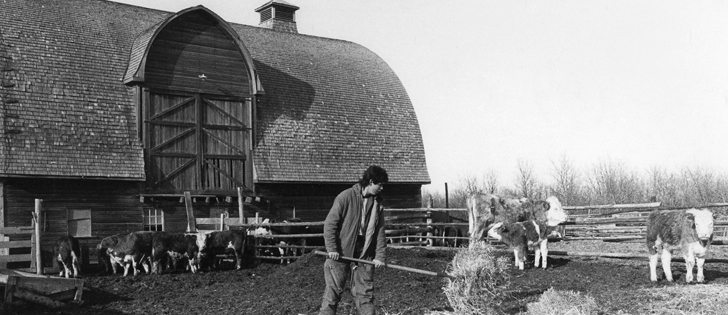The Western Producer takes a weekly look at some of the stories that made headlines in issues of the paper from 75, 50, 25 and 10 years ago.
75 years ago: June 13, 1940
Studies on rubber tired farm equipment at the Dominion Experimental Station in Swift Current, Sask., found that weight and air pressure were the two most important factors in obtaining best results with rubber.
A campaign to increase pork consumption was successful, reported a committee in Saskatoon led by professor J.W.G. MacEwan. It s said retail stores increased sales by as much as 40 percent, when they used vigorous advertising campaigns and attractive displays in their meat departments. .
Read Also

Budget seen as fairly solid, but worrying cracks appear
The reaction from the agriculture industry to prime minister Mark Carney’s first budget handed down November 4th has been largely positive.
50 years ago: June 10, 1965
Saskatchewan farmers were preparing for what might have been the largest chemical weed control program in the province’s history. The Saskatchewan Wheat Pool said the number of treated acres might surpass the record 15 million in 1962. That was reported to have been the largest acreage in any province or state in the world.
A story asked the question, what do the Communist Chinese do with all the wheat they buy from Canada? “Strange as it may seem,” the story said, “they appear to eat it.” The story, which quoted Charles Lynch, who was covering China for the Southam News Service, was making the point that the Chinese don’t just eat rice.
25 years ago: June 14, 1990
Proposed federal legislation that would include regulations for the humane treatment of animals was dividing the farm community. The Canadian Federation of Agriculture approved the proposal, with reservations, but the Canadian Egg Marketing Agency called it “a dangerous and unnecessary precedent.”
Jacques Proulx, leader of the influential Union des Producteurs Agricoles, said the members of his farm group would be better off in an independent Quebec because Agriculture Canada was a captive of western Canadian interests.
10 years ago: June 9, 2005
There were concerns that Japan might reconsider its approval of genetically modified canola. The re-evaluation was part of the country’s steps to ensure the smooth implementation of the Cartegena Protocol on Biosafety. Canola Council of Canada president Barb Isman said, “the whole issue of gene technology has become so sensitized that there really is no such thing as a rubber stamp when it comes to the product.”
Plant scientists at the University of Saskatchewan said they had successfully transferred superior frost tolerance genes into spring wheat. The resulting breeding line, called Saskhardy #8, boasted a 2 to 3 C im-provement in frost tolerance over existing lines. Researcher Brian Fowler said it had the potential to save farmers millions of dollars a year in frost-related losses.
Contact bruce.dyck@producer.com















